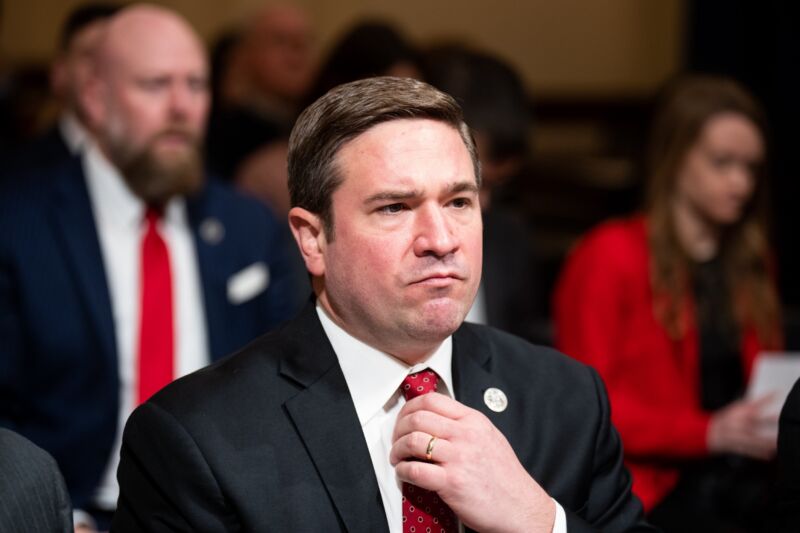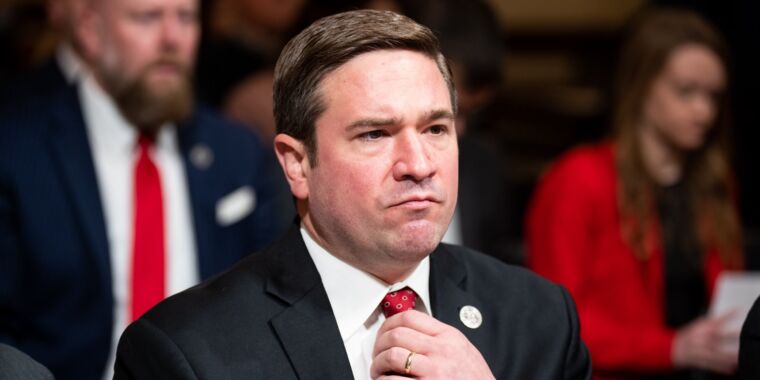
Getty Images | Bill Clark
A federal judge ordered Missouri’s attorney general to halt an investigation into Media Matters for America, a nonprofit journalism organization that earned Elon Musk’s wrath when it published an article showing that Musk’s X platform placed advertisements next to pro-Nazi posts.
In March, Missouri AG Andrew Bailey issued an investigative demand seeking names and addresses of all Media Matters donors who live in Missouri and a range of internal communications and documents regarding the group’s research on Musk and X. Bailey also filed a lawsuit asking Cole County Circuit Court for an order to enforce the investigative demand.
Media Matters countered by suing Bailey in US District Court for the District of Columbia. Last week, US District Judge Amit Mehta granted a preliminary injunction that prohibits Bailey from enforcing the civil investigative demand and from pursuing the related lawsuit.
Mehta had issued a similar order against Texas Attorney General Ken Paxton a few months earlier. Mehta filed a memorandum opinion on August 23 describing the reasons for granting Media Matters’ request for an injunction against Bailey.
Media Matters demonstrated a likelihood of success in its claim that Bailey took retaliatory actions designed to deter speech, Mehta wrote:
The court already has held that Defendant Paxton’s announcement of an investigation and issuance of a CID [Civil Investigative Demand] demanding records relating to Media Matters’ organization, funding, and journalism would sufficiently deter a news organization or journalist “of ordinary firmness” from speaking again about X-related matters. Defendant Bailey has gone one step further. He has filed suit not only to enforce the Missouri CID, but he has asked a state court to sanction Media Matters with a civil penalty. Such action chills speech.
X did not deny basic premise of article
Media Matters has also “likely shown that their reporting was not defamatory and therefore was protected speech,” Mehta wrote. In its public response to the November 2023 Media Matters article, “X did not deny that advertising in fact had appeared next to the extremist posts on the day in question,” Mehta wrote. He continued:
X stated that it had served “less than 50 total ad impressions” next to the “organic content featured in the Media Matters article” (a mere fraction of the 5.5 billion ad impressions served that day), and it conceded that [Media Matters reporter Eric] Hananoki and one other person had seen advertisements of two of the brands identified in the article next to the extremist content. X called these “contrived experiences,” but did not deny the basic premise of the article: that X’s platform was delivering ads of major brands next to extremist content. Many other media outlets, as recently as April 2024, have published similar findings. These other stories corroborate Hananoki’s reporting and Plaintiffs’ belief in its accuracy.
Mehta’s ruling said that Bailey made it clear that “the true purpose of his investigation” was political. “Revealingly, Defendant Bailey expressly tied the investigation to the upcoming election” during an online interview with Donald Trump Jr., Mehta wrote.
“This is absolutely a new front in the fight for the war for free speech. This investigation is really critical and again especially as we move into an election cycle in 2024,” Bailey said during the interview.
Bailey’s lawsuit in Cole County Circuit Court claimed that “Media Matters has used fraud to solicit donations from Missourians in order to trick advertisers into removing their advertisements from X, formerly Twitter, one of the last platforms dedicated to free speech in America.” Bailey hasn’t provided good evidence for this claim, Mehta wrote.
Missouri Assistant Attorney General Steven Reed “never identifies what suspected fraudulent statements or omissions Media Matters made to Missourians for the purpose of soliciting donations,” Mehta wrote. “If he means to say that Media Matters’ defamatory reporting itself is the fraud, he nowhere links that content to Media Matters’ fundraising efforts. He does not claim, for example, that Media Matters used its reporting on X to solicit donations. In fact, the webpage on which the November 16 Article appeared made no express fundraising appeal. Nor did it include a donation link. Defamation is not fraud. It is thus likely that the false reporting-as-fraudulent fundraising justification for the investigation is pretext for retaliation.”
Bailey can appeal Mehta’s order. If the order stands, the preliminary injunction would stay in force until a final judgment in Media Matters’ case against Bailey.

